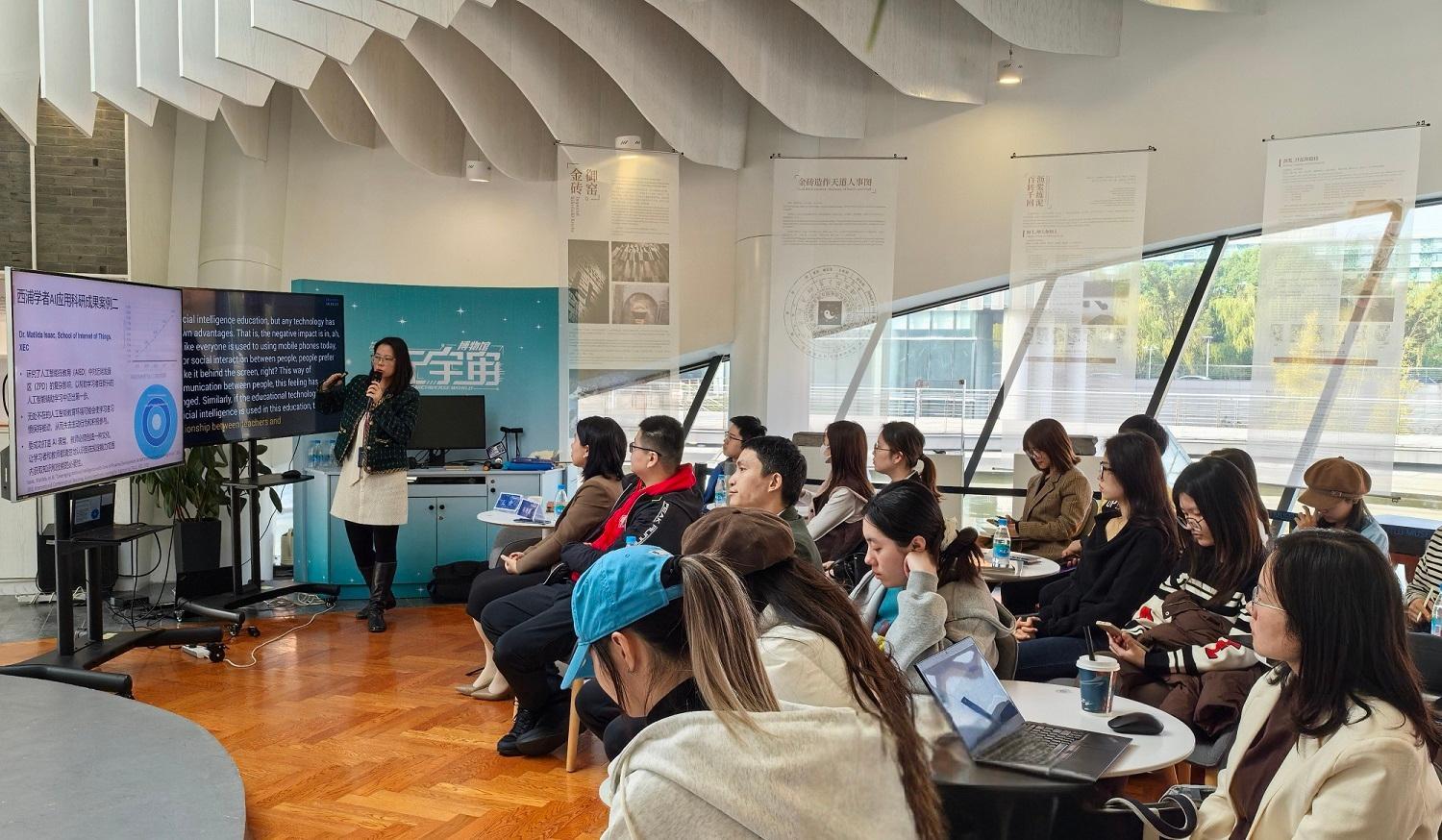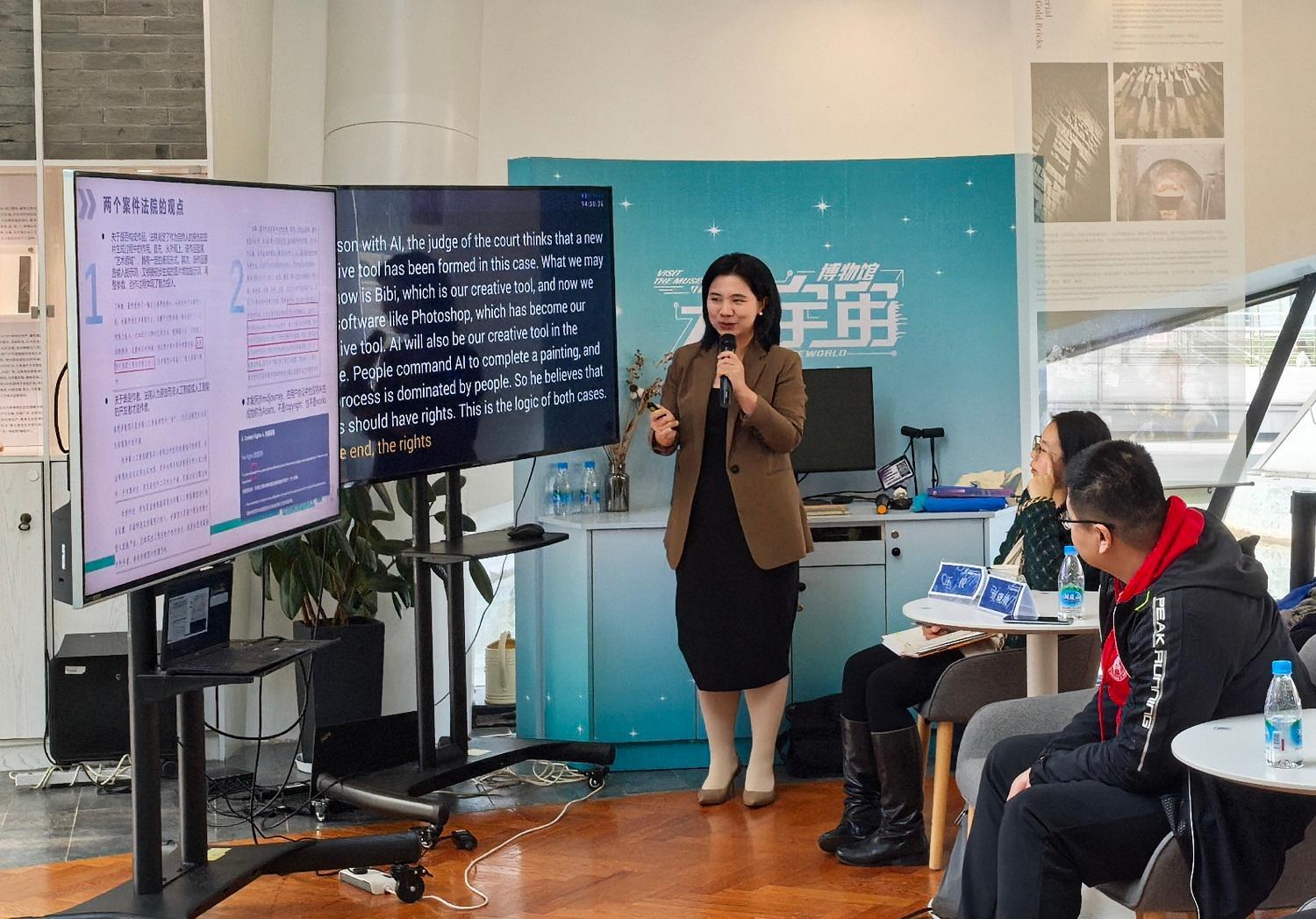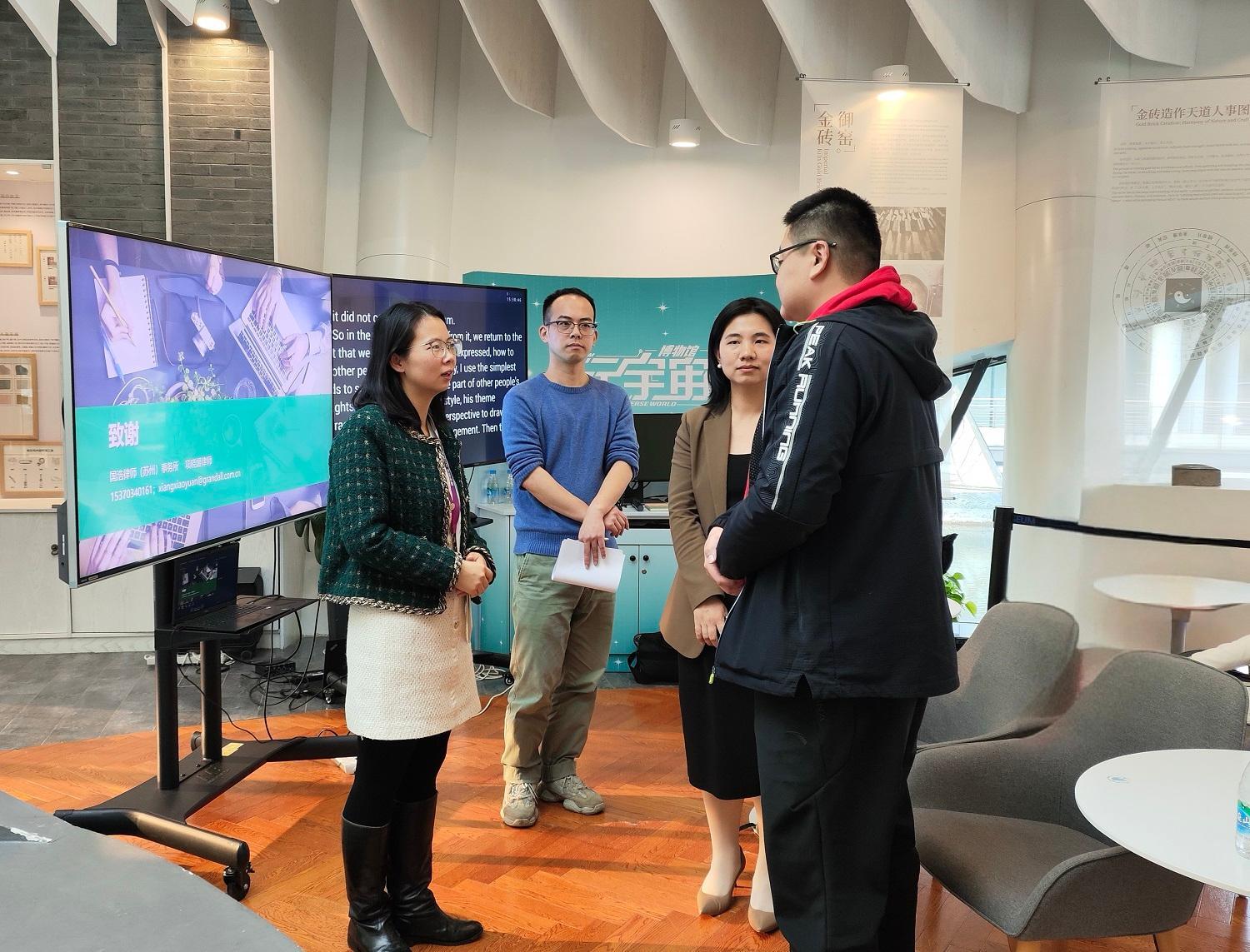With the rapid development of technology, artificial intelligence (AI) is changing our world at an unprecedented speed. In order to discuss the latest development and challenges of generative AI in the perspective of intellectual property (IP), the Intellectual Property Information Service Center (IPISC) of Xi'an Jiaotong-Liverpool University (XJTLU) successfully held the fourth session of the “IP Seminar” on the afternoon of November 21st, 2024. With the theme of “Generative Artificial Intelligence Technology and Intellectual Property”, the seminar attracted many students, faculty and enterprises.

At the beginning of the seminar, Ms. Wang Jun, the Team Leader of Library Academic Liaison and Reference Division, XJTLU, brought a topic titled “Patent Protection Trend and Future Impact of Generative AI”. Ms. Wang, with her rich experience in professional intelligence analysis, combined with the scientific research projects of XJTLU scholars on AI, explained in detail the development history of generative AI, the patent situation, and made an in-depth analysis of the future impact and challenges. She pointed out that the generative AI will have a significant impact on a wide range of industries, providing companies, organizations, and individuals with an unprecedented ability to generate data. However, there are concerns about the use of generative AI models and tools, including copyright infringement, potential misuse and the risk of job displacement.

Ms. Xiang Xiaoyuan, an intellectual property lawyer from Grandall Law Firm, shared the topic on “Copyright Risks of Generative AI”. Ms. Xiang explained the copyrightability of AI-generated content from a legal point of view based on the copyright theories of “idea–expression distinction” and “authorship”, and emphasized that “there is no creation without ideas; new ideas bring new expressions, but new expressions may not necessarily be accompanied by new ideas”. In addition, Ms. Xiang analyzed the ownership of copyright of AIGC based on two famous law cases in China, and pointed out that copyright, as an intangible property right, are justified on the basis of the fact that the right holder must be the author. Finally, Ms. Xiang explained in detail the determination of infringement constituted by the use of works, which helped audience to avoid potential copyright risks when using AI generated content.

The seminar not only provided participants with relevant knowledge, but also promoted exchange between those in university and IP professionals. IPISC will continue to work for IP promotion and training, provide better IP information services and support to students, faculty and industry, facilitating the development of sci-tech innovation and IP protection.




